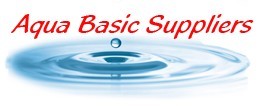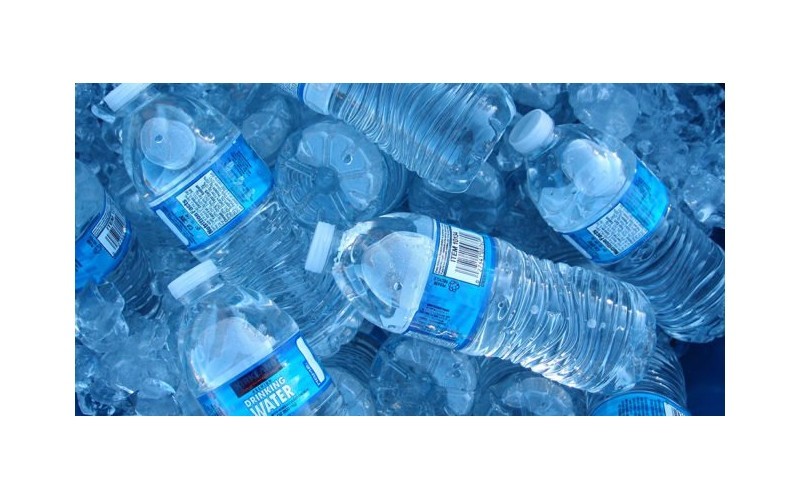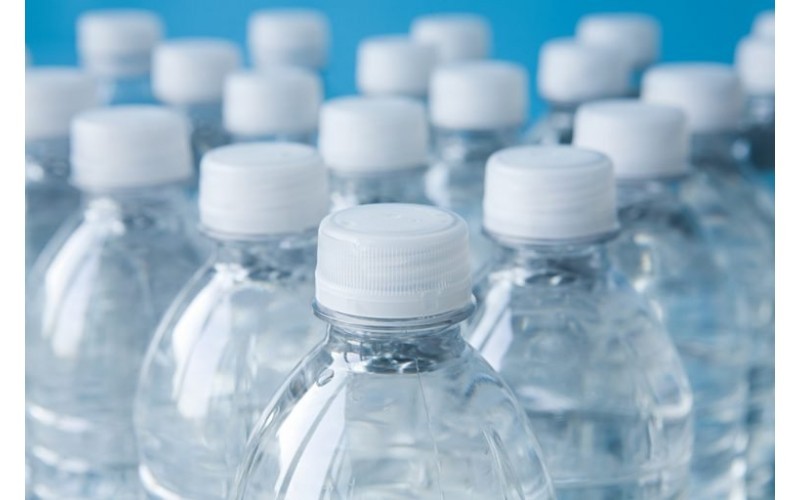Camp Lejeune: Past Water Contamination
Problems with bottled water
From Riverkeeper.org
New York City consumers buy more than a billion bottles of water a year because advertising has led them to believe it's safer or better tasting than tap water. In fact, New York City tap water is just as safe, clean and healthy as bottled water, and often more so. But there are problems with bottled water, which affect the environment, public health and more.
   ENVIRONMENT
o   Plastic bottle production in the United States annually requires about 17.6 million barrels of oil.
o   Worldwide bottling of water uses about 2.7 million tons of plastic each year.
o   Transporting bottled water to market produces air pollution and emissions of carbon dioxide which contribute to global warming.
o   The energy it takes to transport the water to market, to chill the bottles, and collect the empties is the energy equivalent of filling each bottle a quarter of the way with oil.
o   About 86 percent of empty plastic water bottles in the United States land in the garbage instead of being recycled. That amounts to about two million tons of PET plastic          bottles piling up in U.S. landfills each year. View our Trash Free Hudson page for more on this issue >
o   Many plastic bottles end up being incinerated, releasing toxic byproducts such as chlorine gas and ash laden with heavy metals into the air.
o   Despite having world-class tap water, New Yorkers purchase and consume over a billion bottles of water yearly - that's about 125 bottles for every man, woman and child.
    ECONOMICS
o   Tap water costs about $0.002 per gallon compared to the $0.89 to $8.26 per gallon charged for bottled water.
o   As much as 40% of bottled water actually comes from the tap, which means bottled water consumers are paying hundreds or thousands of times more for an illusion of purity.
o   Bottled water typically costs more than $1 for eight to 12 ounces, amounting to more than $10 per gallon.
o   Cities across the nation spend $70 million annually to dispose of plastic water bottles.
"Â Â Â PUBLIC HEALTH
o   The federal government requires far more rigorous and frequent safety testing and monitoring of municipal drinking water than of bottled water.
o   The Food and Drug Administration (FDA) regulates only the 30 or 40 percent of bottled water sold across state lines. FDA regulations also exempt carbonated bottled water.
o   The FDA has less than one full-time employee to oversee bottled water.
o   The FDA requires that companies test for bacterial contamination in water only once per week, and they must test only four empty bottles once every three months for bacterial contamination. When it comes to chemical, physical, or radiological contaminants, a sample of water must be checked only once a year.
o   The FDA does not test bottled water for phthalates like DEP-a chemical that is used to produce plastics water bottles and which is also a potential cancer agent in humans.
o   Chemical from the plastic bottles can leach into the water.
o   According to a Natural Resources Defense Council (NRDC) study of 103 bottled water brands, about one-quarter of the brands tested contained bacterial or chemical contamination in some samples at levels that violated "enforceable state standards or warning levels."
o   The NRDC study found one-fifth of the tested brands "exceeded state bottled water microbial guidelines in at least some samples."
o   The federal Environmental Protection Agency requires that water systems serving more than one million residents test 300 water samples per month, while utilities serving three million people or more must collect and test 480 samples monthly, far more than the once-a-week test for bottled water.
    SOCIAL JUSTICE
o   Water bottlers harm the environment by depleting aquifers and other groundwater sources.
o   Water bottlers often have an impact on local economies because they pay little for the water  they take.
o   Water companies can often draw the maximum amount of water they want, regardless of drought or water shortage.
o   The local water district bears all the responsibility for the wellbeing of the water infrastructure required.
Read about the successful campaign against Niagara Bottling's proposal to withdraw water from Cooper Lake in Kingston NY >
And the outcome >
    WHAT YOU CAN DO
Carry eco-friendly and reusable water bottles
Using eco-friendly bottles takes plastic out of the waste cycle, saves money, and supports your local community.
Volunteer to pick up plastic and trash at your local waterway.
Events like the annual Riverkeeper Sweep (on May 5 this year) helps remove plastic from our shorelines that can eventually make their way from our rivers and into the ocean. Shoreline cleanups are a great way to bring the community together to help the environment while enjoying the outdoors. Visit Trash Free Hudson to learn more >
Spread the word
Share this page and others like it on social media and encourage your friends and family to stop using water bottled in plastic.
Involve your school and local government
Several municipalities, including New York City, have passed laws restricting the purchase of any bottled water with government funds. Some colleges have also banned the sale of bottled wateron campus. These efforts set an example for residents and students to follow.




Leave a comment